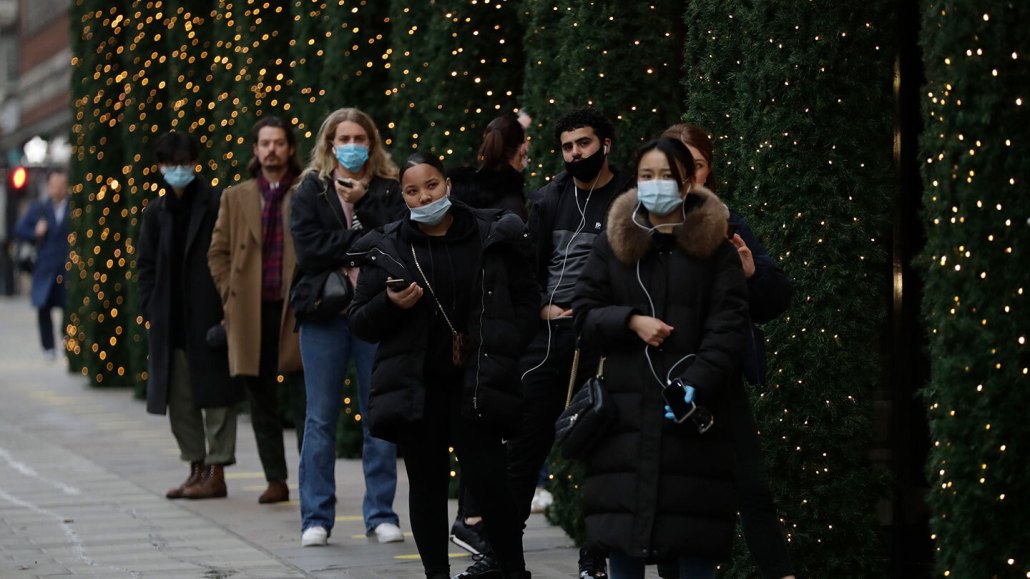The U.K. is the first country to authorize a fully tested COVID-19 vaccine
Pfizer’s coronavirus vaccine could start being given on an emergency basis in the coming days

Shoppers in London line up December 2 to get into Selfridges department store after the country’s latest lockdown aimed at curbing the spread of COVID-19 ended. U.K. approval that same day of a vaccine may help make such shutdowns a thing of the past.
Matt Dunham/AP Photo







